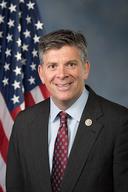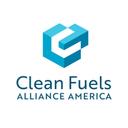Policy
A public comment period on a proposed U.K. SAF mandate is set to close June 22. The mandate, proposed by the U.K. Department of Transport in late March, would require jet fuel suppliers to blend SAF into aviation fuel starting in 2025.
The DOE has released its U.S. National Clean Hydrogen Strategy and Roadmap, which addresses both the potential to produce hydrogen from biomass and biogas and the growing need for hydrogen feedstock in advanced biofuels production, particularly SAF.
Nebraska Gov. Jim Pillen on June 1 signed the Adopt the E15 Access Standard Act, a bill that aims to increase consumer access to E15 by providing tax credits to fuel retailers that sell higher ethanol blends.
On May 31, 21 members of the House, led by Rep. Darin LaHood, R-Ill., sent a letter to U.S. Trade Representative Katherine Tai urging her to protect U.S. farmers and biofuel producers and prioritize U.S. ethanol export competitiveness in Brazil.
Global Clean Energy Holdings Inc. and the USDA have signed a contract for the Partnerships for Climate-Smart Commodities Grant for their Climate-Smart Camelina project. With the signing, work can officially begin on the $30 million pilot project.
The Canadian government on May 31 announced plans to invest $86 million into a project that is converting an oil refinery located in Come By Chance, Newfoundland and Labrador, into a biorefinery that will produce renewable diesel and SAF.
The ag commissioners of Iowa, Alabama, Georgia, Kentucky, Louisiana, Mississippi, North Carolina, North Dakota, South Carolina, Texas and West Virginia are urging the U.S. EPA to boost biomass-based diesel RVOs in the upcoming RFS rule.
Whitefox Technologies has annoucned that The Andersons Inc. has successfully installed the Whitefox ICE membrane dehydration system at its ethanol plant located in Denison, Iowa. This is Whitefox’s 11 installation in the U.S.
The Nebraska Legislature on May 30 voted 46 to 0 to approved the Adopt the E15 Access Standard Act, a bill that aims to expand access to E15 within the sate and increase tax incentives for fuel retailers that sell higher ethanol blends.
The Illinois legislature in May passed legislation that aims to boost the state’s corn industry by increasing the level of ethanol that must be blended into transportation fuel in order to be eligible for a fuel sales tax exemption.
The European Commission on May 23 announced it has closed its antitrust investigation into Belgium-based Alcogroup S.A. and its subsidiary Alcodis S.A. related to their alleged participation in an ethanol benchmarks cartel.
The U.S. Department of Energy on May 24 launched the Clean Fuels & Products Shot, which aims to significantly reduce GHG emissions from carbon-based fuels, including though the increased use of biomass and waste feedstocks.
A $1.3 billion transportation budget package passed by the Minnesota legislature on May 21 aims to create a Clean Transportation Standard Working Group to study and address information gaps and opportunities related to the development of a state CFS.
The White House OMB has opened a public comment period as part of a federal effort that aims to improve how to identify, classify and measure bioeconomy manufacturing, technology and products, including biobased fuels, chemicals and materials.
Sens. Chuck Grassley, R-Iowa, and John Cornyn, R-Texas, on May 18 introduced a bill that aims to prevent EV manufacturers from participating in the Renewable Fuel Standard and would direct the U.S. EPA to withdraw its proposed eRIN program.
Intercontinental Exchange Inc. has announced strong demand for U.S. RINs as increasing numbers of participants with RIN compliance obligatations hedge price risk associated with mandated Renewable Fuel Standard targets.
Nearly 1.84 billion renewable identification numbers (RINs) were generated under the Renewable Fuel Standard in April, up from 1.71 billion generated during the same month of 2022, according to data released by the U.S. EPA on May 18.
The U.S. EPA on May 18 released updated small refinery exemption (SRE) data, showing that no new SRE petitions have been filed under the Renewable Fuel Standard during the past month. According to the agency, 27 SRE petitions remain pending.
The U.S. EPA has delivered its final rule to set 2023, 2024 and 2025 Renewable Fuel Standard blending obligations to the White House Office of Management and Budget. OMB review marks a final stage before promulgation of a rulemaking.
The U.S. Department of Energy on May 17 awarded $251 million to 12 projects that will support infrastructure development for carbon dioxide (CO2) transport and storage. One of those projects specifically targets CO2 sourced from ethanol production.
The Iowa Renewable Fuels Infrastructure Program Board approved 15 project applications and 11 supplemental grant requests for a total of more than $800,000 during its quarterly board meeting on May 9.
A bill introduced in the U.S. House of Representatives on May 15 aims to allow corn ethanol to qualify as an advanced biofuel under the RFS. It would also require the U.S. EPA to use the GREET model to determine the GHG emissions profile of biofuels.
USITC: Duties on Argentina, Indonesia biodiesel will continue
Clean Fuels Alliance America on May 26 welcomed the final determination of the U.S. International Trade Commission in its five-year (“sunset�) review of anti-dumping and countervailing duty orders on biodiesel from Argentina and Indonesia.
Iowa Gov. Kim Reynolds, Missouri Gov. Mike Parson and Nebraska Gov. are urging the U.S. EPA to increase biomass-based diesel renewable volume obligations (RVOs) for 2023, 2024 and 2025 in the upcoming Renewable Fuel Standard “set� rule.
The U.S. Department of Energy on May 24 launched the Clean Fuels & Products Shot, which aims to significantly reduce GHG emissions from carbon-based fuels, including though the increased use of biomass and waste feedstocks.
Biodiesel Magazine spoke with an auditor and an industry expert about what biointermediates are, potential opportunities and hurdles to participation.
A $1.3 billion transportation budget package passed by the Minnesota legislature on May 21 aims to create a Clean Transportation Standard Working Group to study and address information gaps and opportunities related to the development of a state CFS.
The White House OMB has opened a public comment period as part of a federal effort that aims to improve how to identify, classify and measure bioeconomy manufacturing, technology and products, including biobased fuels, chemicals and materials.
Advertisement

































